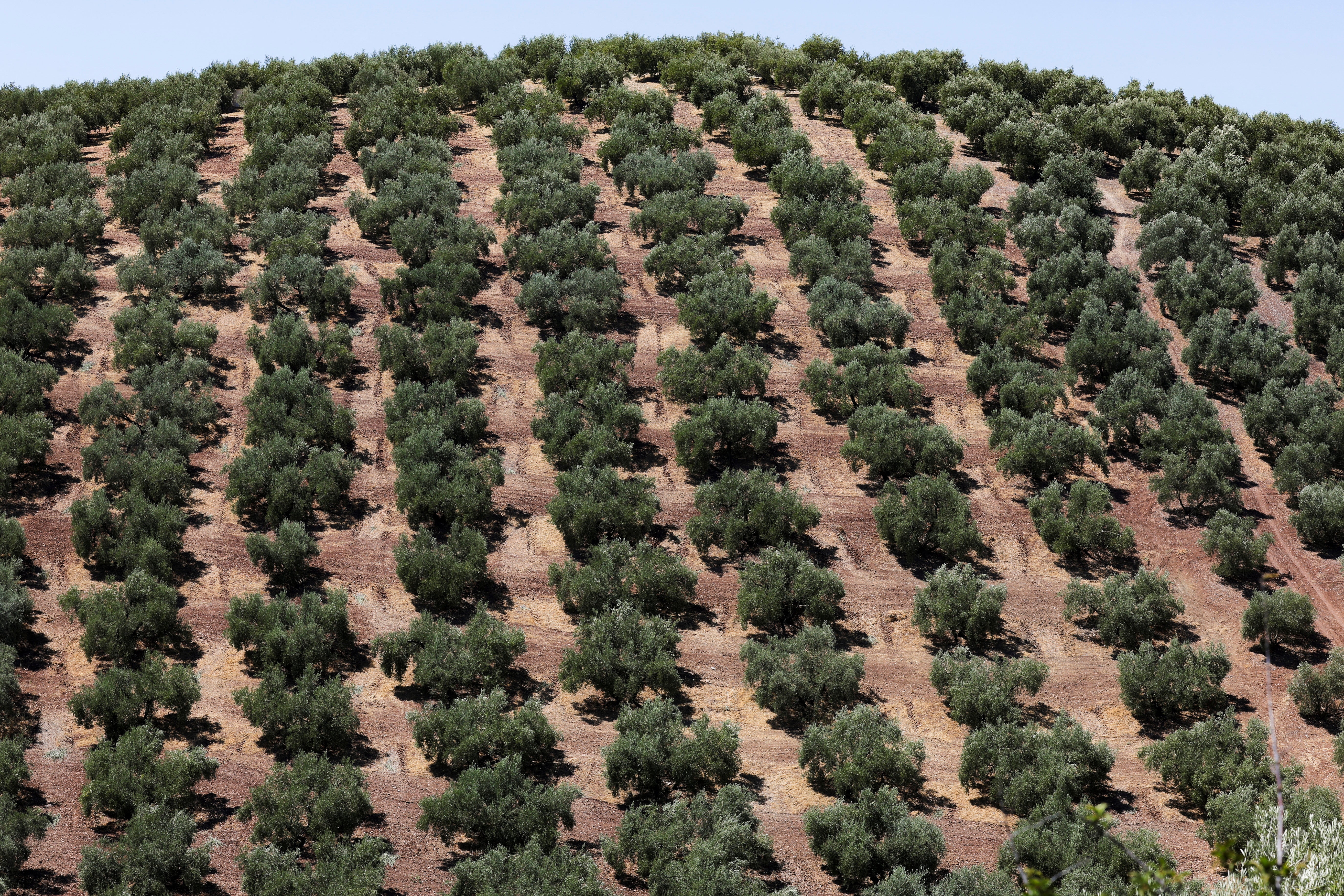Spain’s olive oil producers are turning to stones for fuel
The country has been hit by skyrocketing electricity bills

Farmer David Jimenez Zamora barely flinched when gas and electricity prices in Spain soared.
He kept heating the covered pool in the 18th century farmhouse he rents to tourists and the hot water running for as many as 26 guests at once without getting the terrifying energy bills hammering fellow Spaniards.
His secret? Olive stones.
“We use olive pits from our trees to heat the swimming pool, the underfloor heating system and get hot water,” said the 48-year-old.
“This is normally used from September onwards,” he said, standing by a store holding 5,000 kilos of stones overlooking a sea of olive trees in the province of Granada, in the southern Andalusia region.
Olive stones also power the machines producing Spain’s famed “liquid gold” olive oil at two agricultural cooperatives he’s part of. Solar panels cover the rest of their energy needs.
The use of pits to fuel boilers in homes and small enterprises, mills and even flights in Spain’s olive-growing heartland shows the role the industry and the country’s vast agricultural sector can play in helping decarbonise hard-to-electrify sectors, like aviation.

Using stones as biomass isn’t new in olive-producing countries like Spain and Italy. However, the energy shock following Russia’s invasion of Ukraine, Europe’s decarbonisation push and the olive oil industry’s struggles in recent years with fluctuating prices have sparked renewed interest in getting maximum value out of the crop, farmers and industry groups said.
Spain’s olive oil industry is also a natural ally for companies like Repsol and Cepsa, which are investing heavily to boost capacity to turn organic waste into biofuels.
Spain is the world’s largest producer of olive oil, accounting for up to half of the global output in recent years, 80% of that from Andalusia.
In the ten years through 2019, the country accounted on average for over half of Europe’s stock of olive stones, Spanish biomass association Avebiom estimates.
A byproduct of olive oil production, pits account for between 8 and 10% of a ton of processed olives. On average, Spain produces around 400,000 tons of olive pits a year, Avebiom’s Pablo Rodero said.

Roughly a third of this is refined to reduce moisture content and get a clean product that can fuel domestic boilers, fetching the highest prices - up to twice as much as unrefined stones, according to Rodero. The rest is used to produce thermal energy to drive the almazaras - as the traditional mills are known - and in industrial boilers, according to the association.
More and more mills and companies are refining the stones for sale to domestic users, Rodero said.
At the end of last year, Spain had 31 firms refining and producing olives stones as biomass, up from 25 in 2020.
Many, like Pelaez Renovables, are in Andalusia. Every year, it refines up to 25,000 tons of stones for sale to domestic and industrial customers, with an added value of between 60-80 euros a ton, managing partner Jose Pelaez said.
The past couple of years have been difficult, he added.
Scorching temperatures devastated Spain’s olive crop. With fewer stones on the market, prices soared, upending years of stability and leading to a 40% drop in demand, Pelaez said.

Last year, consumers had to shell out up to 400 euros a ton, or some 8 euro cents per kilowatt-hours (kWh), for olive pits, including transport and taxes, more than double the price in 2021, according to Avebiom data.
Stones remained cheaper than diesel and the government-regulated gas tariff but in line with wood pellets and more expensive than wood chips.
In the second quarter of this year, prices fell toward 300 euros a ton, a decline Pelaez hopes will bring higher sales.
“I would be happy with an increase of 5-10% per year,” he said.
Biomass and biofuels should play a limited role in the energy mix when electrification isn’t an option, Sara Pizzinato and Helena Moreno of Greenpeace Spain said, as burning biomass still has an environmental impact and releases contaminants.
“The sector is attracting private equity firms eager to industrialize the production, making it unsustainable,” Moreno said.
Oil company Cepsa even took the humble pits to the sky. In 2022, it used them and other olive industry waste to make sustainable aviation fuel (SAF) that powered more than 200 flights out of Andalusia’s Seville airport.

Large companies have focused on cheaper waste, equally or better suited to become biofuels, like used cooking oil, Rodero and other industry sources said.
Stones and other organic waste are though an increasingly important income source for mills, said Macarena Sanchez, director of Almazaras Federadas de Espana which represents more than 200 mills, accounting for up to a third of their revenue.
This marks a drastic change for an industry that in the past didn’t know what to do with its waste, said Rodero.
“Now everything is used,” he said. “Olives are like pigs: Nothing goes to waste.”
Join our commenting forum
Join thought-provoking conversations, follow other Independent readers and see their replies
Comments
Bookmark popover
Removed from bookmarks